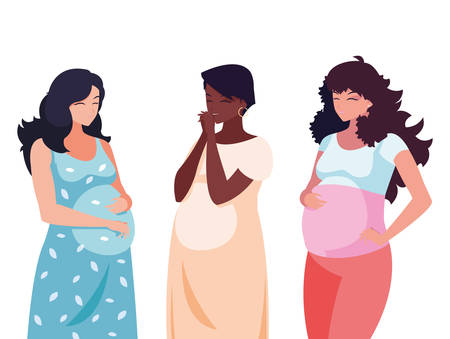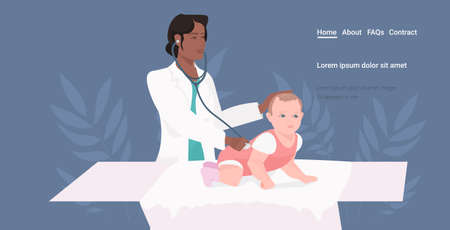Understanding Postnatal Depression in the UK
Postnatal depression (PND) is a mental health condition that affects many parents in the weeks and months following childbirth. In the UK, awareness of postnatal depression has grown steadily, yet it remains surrounded by misconceptions and stigma within some communities. While welcoming a new baby is often portrayed as a time of joy, British society increasingly recognises that emotional struggles are both common and normal during this period.
It’s important to distinguish between the “baby blues”—a short-lived period of mood swings and tearfulness affecting up to 80% of new mothers—and postnatal depression, which is more persistent and severe. PND can affect both mothers and fathers, and symptoms may develop gradually or appear suddenly several weeks after birth.
| Common Symptoms of Postnatal Depression | How It Is Perceived in British Society |
|---|---|
|
|
In recent years, campaigns across the UK have aimed to break down barriers to discussing mental health after childbirth. Health visitors, midwives, and GPs are now better trained to recognise signs of PND and encourage parents to talk about their feelings. While progress continues, understanding postnatal depression within a British context means acknowledging both the advances in support and the cultural factors that can still make reaching out difficult for some families.
2. Recognising Early Signs and Seeking Help
Understanding the early signs of postnatal depression is crucial for parents and their loved ones. In the UK, postnatal depression can sometimes be overlooked due to the societal expectation that new parenthood should be a joyful experience. However, noticing changes early and seeking support through the NHS can make a significant difference in recovery.
Identifying Early Indicators
It is essential to recognise that symptoms may appear subtly and can vary from person to person. Here’s a helpful table outlining some common early signs:
| Emotional Signs | Physical/Behavioural Signs |
|---|---|
| Persistent low mood or sadness Irritability or anger Feeling overwhelmed or hopeless Lack of interest in the baby |
Changes in appetite or sleep patterns Lethargy or lack of energy Avoiding social contact Trouble bonding with your baby |
Breaking the Stigma
For many parents, admitting to struggling emotionally after childbirth can feel daunting due to stigma. It’s important to remember that postnatal depression is a medical condition, not a personal failing. Talking openly about mental health within families and communities helps normalise these conversations. This openness also empowers parents to access the support they deserve without shame.
Empowering Yourself and Loved Ones
If you notice these signs in yourself or someone close to you, consider these steps:
- Start a conversation: Gently express your concerns or feelings to someone you trust.
- Reach out to professionals: Contact your GP, health visitor, or midwife for guidance—they are trained to help.
- Utilise local resources: Many communities offer support groups, both in-person and online, specifically for new parents.
The Importance of Early Action
The sooner you seek help, the better the outcome. The NHS offers confidential advice and treatment options tailored to each family’s needs. Remember, asking for support is a sign of strength—not weakness—and taking this step benefits both you and your child’s wellbeing.

3. Initial Steps: Visiting Your GP
When you start noticing signs of postnatal depression, the first and most important step within the NHS pathway is to book an appointment with your local GP. This can feel daunting, especially when you’re sleep-deprived and overwhelmed by new parenting responsibilities, but reaching out for help is a crucial act of self-care—for both you and your baby. Here’s some practical guidance on how to take these first steps.
Booking Your Appointment
Most GP surgeries in the UK offer several ways to book appointments: online via their website or the NHS App, by telephone, or sometimes in person at the surgery. If you find it difficult to speak about your feelings over the phone or face-to-face, you might prefer booking online. Try to mention that your concern is related to postnatal mental health—this can help the practice team prioritise your appointment.
| Booking Method | How To Access |
|---|---|
| Online | NHS App or GP website |
| Phone | Call GP reception during working hours |
| In Person | Visit surgery reception desk |
What to Expect During Your Visit
Your GP will create a safe space for you to talk about your mood, energy levels, sleep, appetite, and any intrusive thoughts or worries you might be experiencing. You may be asked to complete a short questionnaire about your mental wellbeing—tools like the Edinburgh Postnatal Depression Scale are commonly used across the UK. It’s completely normal to feel emotional during this conversation; GPs are trained to support parents through these discussions with empathy and understanding.
The Role of GPs in the NHS Pathway
Your GP acts as your first point of contact and plays a central role in coordinating your care. They will assess your symptoms, provide initial support such as reassurance or self-help materials, and discuss treatment options tailored to your needs. This could involve referrals for talking therapies (like cognitive behavioural therapy), medication if appropriate, or linking you with specialist perinatal mental health teams. The table below outlines typical next steps after your GP visit:
| Next Step | Description |
|---|---|
| Self-Help Resources | Information leaflets and support groups recommended by your GP |
| Talking Therapies Referral | Counselling or CBT via Improving Access to Psychological Therapies (IAPT) |
| Medication Review | If suitable, discussion of antidepressant options safe for breastfeeding mothers |
Key Takeaway for Parents
Remember, visiting your GP is not only about seeking medical advice—it’s also an opportunity to start building a supportive network around you as you navigate early parenthood. Your courage in taking this first step matters deeply, and the NHS is there to walk alongside you every step of the way.
NHS Support Pathways and Services Available
When you begin to notice signs of postnatal depression, understanding the available NHS support pathways can help you feel less alone and more empowered. The NHS offers a comprehensive range of services designed to support both your mental wellbeing and the unique needs of new parents. Here’s an overview of what’s accessible through the NHS, along with a look at how each service fits into your recovery journey.
Key NHS Services for Postnatal Depression
| Service | Description | How to Access |
|---|---|---|
| Health Visitors | Trained nurses who offer regular check-ins, emotional support, and practical advice for new parents. | Automatically provided after birth; you can contact your local health visitor directly if needed. |
| GP (General Practitioner) | Your first port of call for discussing symptoms, receiving advice, and arranging referrals. | Book an appointment at your local surgery; GPs can refer you to specialist services. |
| Talking Therapies (IAPT) | Counselling, cognitive behavioural therapy (CBT), and other structured talking treatments tailored to perinatal mental health. | Self-refer online or ask your GP/health visitor for a referral. |
| Mother and Baby Units (MBUs) | Specialist inpatient units where mothers experiencing severe postnatal mental illness can stay with their babies while receiving intensive care. | Referral via GP, psychiatrist, or community mental health team is required. |
The Referral Process Explained
The pathway usually begins with a conversation—often with your health visitor or GP—where you can openly discuss how you’re feeling. They may carry out a brief assessment using standard questionnaires to understand your mental health needs. If further support is needed, they will guide you through the next steps: referring you to local talking therapies, arranging appointments with perinatal mental health teams, or providing information about community resources such as peer support groups.
For those requiring more specialised care due to severe symptoms, your GP or mental health professional may recommend a Mother and Baby Unit. These are rare but invaluable resources that allow mothers and infants to stay together while receiving expert support in a safe environment.
Throughout this process, it’s important to remember that you have choices—you can express preferences about treatment options and ask questions at every stage. The NHS aims to provide family-centred care that respects your voice as a parent on your unique path toward recovery.
5. Community and Peer Support Networks
Recovering from postnatal depression can feel isolating, but you are not alone. Across the UK, a rich tapestry of community-based and peer support networks exists to help parents navigate their journey towards better mental health. Connecting with others who understand your experiences can offer comfort, practical advice, and a sense of belonging that is invaluable during recovery.
UK-Based Support Groups and Charities
There are numerous national and local organisations dedicated to supporting parents experiencing postnatal depression. These groups often provide in-person meetups, online forums, helplines, and workshops that foster understanding and emotional wellbeing.
| Organisation | Type of Support | How to Access |
|---|---|---|
| PANDAS Foundation | Helpline, peer support groups, email support, online community | Website |
| NCT (National Childbirth Trust) | Local meetups, parent support lines, courses for new parents | Website |
| Mind | Local branches offering mental health support and signposting | Website |
| MumsAid | Counselling and group support for mothers in London area | Website |
| Dads Matter UK | Support for fathers experiencing postnatal mental health difficulties | Website |
Local Resources: Finding Help in Your Area
Your local NHS trust or council often lists community resources tailored to your region. Health visitors and GPs can also recommend nearby groups or drop-ins. Many libraries, children’s centres, and family hubs host regular coffee mornings or parenting classes where you can meet others facing similar challenges.
Online Peer Communities and Social Media Groups
If leaving the house feels daunting, virtual communities on platforms like Facebook or Netmums provide accessible spaces to share experiences anonymously or under your own name. These forums can be especially useful for those living in rural areas or with limited mobility.
The Power of Shared Experience in Recovery
Engaging with peer support networks not only helps reduce feelings of isolation but also empowers you to recognise signs of improvement and setbacks within yourself. Through shared stories and collective wisdom, these communities foster hope, resilience, and a renewed sense of connection—reminding you that seeking help is a courageous step towards healing.
6. Family Involvement and Building a Supportive Environment
When a parent experiences postnatal depression, the involvement of family can make a significant difference in recovery and the overall well-being of both parent and child. Understanding how families can support their loved one, while also nurturing healthy bonds, is central to navigating postnatal mental health challenges within the UK’s NHS framework.
The Role of Family in Recovery
Family members—partners, grandparents, siblings, or close friends—can provide emotional and practical support. Offering a non-judgemental ear, helping with daily tasks, or accompanying your loved one to NHS appointments can ease the burden on the new parent. Here are some ways families can be involved:
| Support Strategy | Description | How to Access/Implement |
|---|---|---|
| Open Communication | Create a safe space for honest conversations about feelings and concerns. | Encourage regular check-ins; listen without offering immediate solutions. |
| Practical Help | Assist with household chores, childcare, or meal preparation. | Offer specific help (e.g., “I’ll do the shopping today”) rather than general offers. |
| NHS Appointment Support | Attend appointments or help manage reminders and paperwork. | Ask if your presence would be helpful; respect privacy wishes. |
| Self-care Encouragement | Promote moments for rest and self-nurture for the recovering parent. | Take over baby care so the parent can nap or enjoy a hobby. |
Fostering Healthy Parent–Child Bonds
A supportive environment helps strengthen the attachment between parent and child—a key part of healthy development. Gentle encouragement for positive interactions such as cuddling, reading together, or simply spending quiet time can nurture these bonds. The NHS often provides resources like health visitor advice or local parenting groups to facilitate this process.
NHS Resources for Ongoing Mental Well-being
It’s important for families to be aware of available NHS resources and community-based support:
- Health Visitors: Regular visits from health visitors offer guidance on both parental mental health and child development.
- Mental Health Charities: Organisations such as Mind, PANDAS Foundation UK, and Family Action offer helplines, peer support groups, and online resources tailored for families facing postnatal depression.
- NHS Talking Therapies: Accessible by GP referral or self-referral in many areas, these services include cognitive behavioural therapy (CBT) and group sessions that may involve family participation.
- Parenting Courses & Groups: Local children’s centres often run free courses focused on building parent–child relationships in a supportive setting.
Towards Lasting Well-being Together
The journey through postnatal depression is rarely linear. By actively involving family members in the recovery process—and seeking out both NHS and community resources—the foundation is laid not only for healing but also for enduring positive relationships between parent and child. A compassionate home environment supports resilience and long-term mental well-being for every family member involved.


